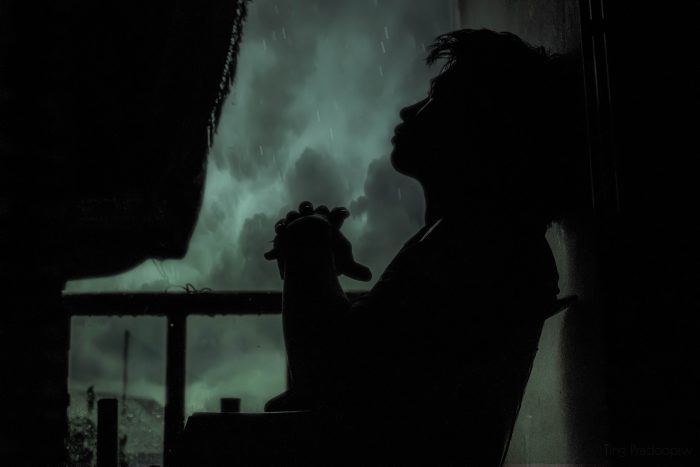I am the poster child of self-destruction.
One of my earliest and most vivid childhood memories involves me crawling into bed with my parents after having a nightmare, then waking up to the nightmare of my dad frantically trying to resuscitate my mom in the bed beside me.
I remember it so well because that was the day that my life turned upside down and never has since been right side up. When it does take on the semblance of a normal, happy life, I feel a great sense of displacement. I don’t relate to functional people and commitment is a foreign concept to me. In other words — chaos is my comfort zone.
For those of us who grew up under dysfunctional circumstances, chaos is our natural resting state. Stability and normalcy feel fraudulent and foreign. Once you are touched by trauma, it creates a domino effect on the rest of your life, replicating itself over and over in seemingly unrelated and distant events. For me, I saw that singular incident extend its reach into my interactions with my remaining family and later in every relationship I ever had. My life was a mess more often then it wasn’t. As such, a state of chaos is where I feel most at home, and unfortunately, I will sabotage my happiness to achieve it. In the same way that “normal” people seek out predictability and order, I seem to subconsciously seek out disorder.
And that’s okay.
I seek out chaos because I know that I am strong enough to survive it. I seek out chaos because I know that it is the best place to foster personal growth. I seek out chaos because I know that feeling something passionately, is better than being comfortable– but numb; that life is given meaning by all our experiences and emotions, good and bad.
When chaos is your comfort zone, that reptilian fear of the unknown that exists in normal people no longer exists within you. You know your strongest, most adaptable qualities, and aren’t afraid to put them to use. When chaos is your comfort zone, you would rather brave chaos than to have never pursued your dreams. You would rather brave chaos than stay in an unfulfilling relationship, just because it is familiar and stable. You would rather brave chaos, because you know that only when you take the path less travelled can you chart a course for the future that has never been taken before. And you aren’t afraid of failure, because you’ve been through it all before.
I won’t try and convince anyone that chaos is some magical place to be — it’s not. Your email is always backlogged, your car is messy, your relationships are unstable, and your impulse decisions make it almost impossible to plan for the future. You don’t identify with people who breeze through their lives without worry, and they certainly don’t identify with you. But when stability feels static and sedentary and poisonous, you have to learn to make chaos work, or otherwise drown under its waves. It has often been from this chaos that I, among many kindred spirits, have forged our greatest accomplishments.
I have a love hate relationship with chaos because my growth is triggered and accelerated by conflict. After my mom died, and during the subsequent traumas that followed, I learned to channel the chaos that surrounded me into creation and became a better writer because of it. I became more perceptive and less tolerant of situations that did not serve me and I would no longer accept stability if it meant losing who I was. Most importantly, I learned that sometimes your life has to be thrown into turmoil before you find your direction.
Because at the end of the day, when chaos is your comfort zone, stability is far more dangerous to your personal growth than chaos ever was.






Read 0 comments and reply